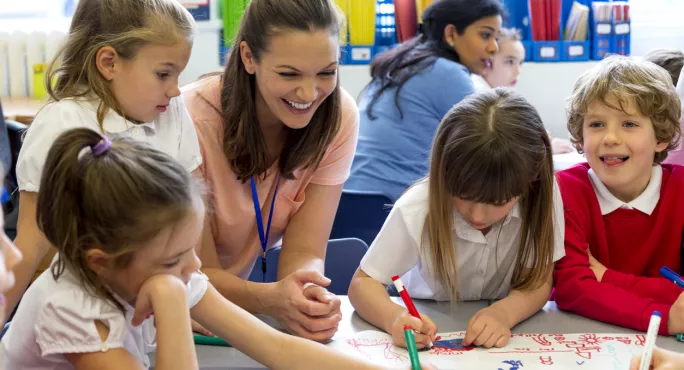Becoming a parent has made me a more sympathetic teacher and it has surprised me. Behaviour management, uniform, homework, whether students have equipment, attendance; my view on everything has shifted slightly.
Ten years ago we were actively encouraged to “put a student in their place” or give them “a good rollicking” in the corridor to show them who was boss if they stepped out of line.
This militant approach is the antithesis to the restorative behaviour management favoured in Scotland now and, honestly, after becoming a parent, it seems a little embarrassing. I’m surprised I coped with the stress of these confrontations, they happened so frequently. Yet it’s only since becoming a mum that I’ve really reflected on that advice or discussed it with other teacher-parents.
A primary teacher’s view: ‘I changed how I teach after becoming a parent’
Parental engagement: A ‘terrifying’ prospect for many families
‘All parents invited’: The words working parents dread
There’s no denying that it did work, temporarily at least. Whatever the reason, I had a loud voice and plenty of frustration to expel on those who seemed intent on destroying my lessons. And it did feel that personal; no one suggested anything else. Our stress levels were high and the examples of poor behaviour were often extreme, but now I know I’d be furious if a teacher railed at my family in this way.
‘Parent conscience’
There are always instances where you have to raise your voice as a teacher, and we’re all human. But I do wonder whether, when a teacher is furious at a student for not having a pencil, or their homework, or for talking when they shouldn’t be, whether out-and-out rage is actually effective.
And becoming a parent has made me develop a “parent conscience”: how would I feel if a teacher said that to my daughter? How would I feel if she needed to go to the loo and was told she was refused permission? That’s a particularly interesting one. My wife (a non-teacher) was shocked that a child’s request to nip to the loo would ever be denied, and I can sort of see her point. It’s not so easy when the eighth person asks, just as they’re about to write an essay, but some teachers’ blanket refusal policy seems wrong to me.
I see a child more holistically now. The lack of a tie and scruffy uniform might have meant a rebellious teen (and it still might), but now I consider why the shirt’s not washed or who’s not noticing that that kid’s hair hasn’t been washed in a week. If a student is eating a packet of crisps at 8am, is it because they didn’t have another choice of breakfast? It’s another reason that I’m not a fan of homework: those with chaotic home lives get hassled about it at school, which is potentially the one place they manage to gain structure - and we shouldn’t undermine that.
A child’s home life can be incredibly complex, and not just in deprived areas. There are some shocking cases of neglect in the private system, too. Being sympathetic can be all it takes to improve a student’s focus or attendance - and being sympathetic doesn’t mean “soft”.
Kindness is a strength in teaching
Kindness can be perceived as weakness in teaching, but when my daughter goes to school it’s what I hope for most from her teachers. And it’s what I think we should give. If there’s no pencil, they can borrow one; if they forgot their book, then they can write on paper for a lesson. If they’re barely in uniform, guidance teachers will follow it up; does it have to be such a huge issue from lesson to lesson?
I don’t know if becoming a parent has made me a better teacher - but it has made me a different one.
Sam Tassiker is a secondary teacher in Scotland




